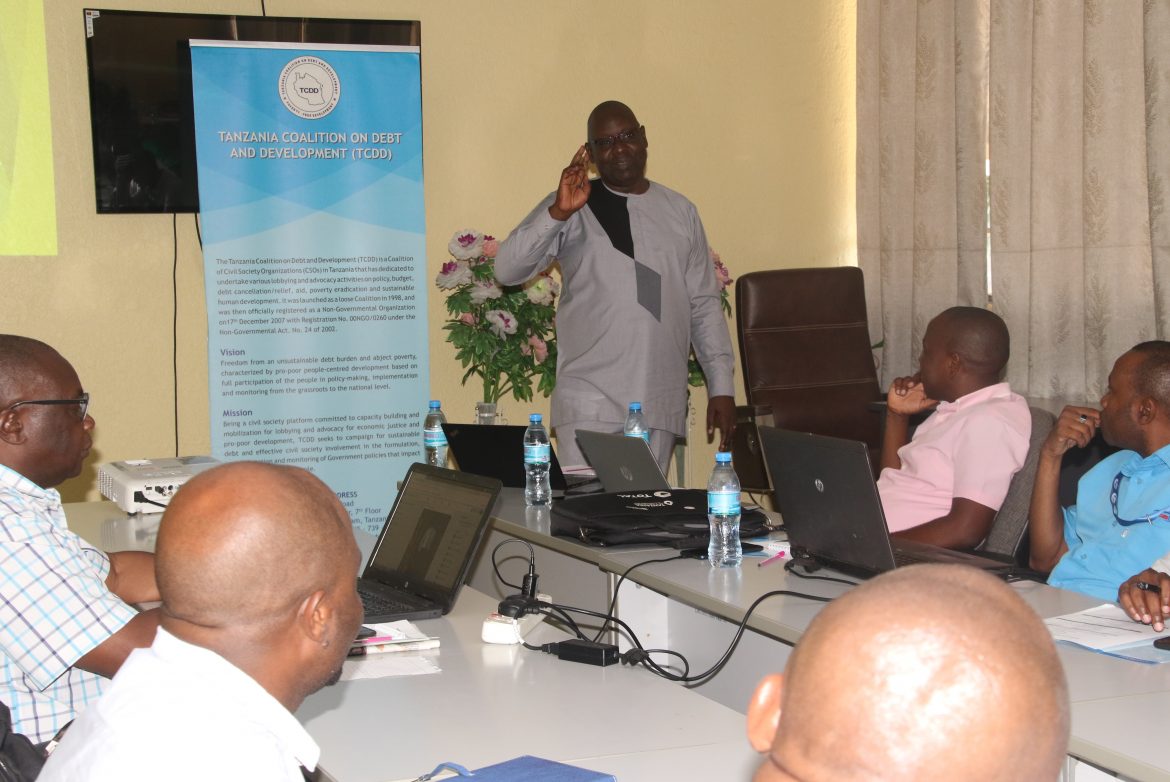Tanzania Media Editors Training on Public Debt Management
Tanzania Coalition on Debt and Development (TCDD) conducted training for media editors on Public Debt Management. The training was conducted in Dar es Salaam on 24th February 2023. The participants came from print, electronic, and online media. The consultant from the University of Dar es Salaam Prof. Abel Kinyondo took the presentations on Public Debt Management in Tanzania.
He argued that, in any country, Public debt is one of the important sources of income for the government in times of financial crisis, and emergencies like war, drought, and diseases. Public debt (alternatively, national debt or sovereign debt) is debt owed by the public sector, that is, by governments and their agencies.
During the training, participants were able to challenge the government to opt for a few mega-project implementations as alternative solutions to manage the rapid growth of public debt. The implementation of many mega projects at once is contributing to the sharp hiking of the public debt and thus a priority in project implementation is a must.
Professor Kinyondo said the burden of public debt increases inequality as purchasing power transfers from the poor to the rich. Internal public debt harmfully affects the ability and desire to work, save and invest. It transfers purchasing power from young to order generation and reduces private investment. The government should manage the public debt so that it can develop the domestic financial market. “If we can revise the government spending and take the right channel of project execution we can retain the microeconomic stability,” said Prof Kinyondo. Selectivity of the project execution in line with the direct impact they have on people should be the first thing to be considered before planning for a certain project that requires borrowing of funds.
According to the Central Bank’s Monthly Economic Review for December 2022, total public debt stood at $39.55 billion (Tsh 92.32Trn) at the end of November 2022.
The participants challenged the government to properly manage the expenditure in order to reduce the cost of borrowing, as this will help to develop the domestic financial market, facilitates economic development, and make countries less vulnerable to financial risks. An effective debt strategy should be implemented and risk in the portfolio should be mitigated. Government should ensure the policies and operations are consistent with an efficient market for government securities.

